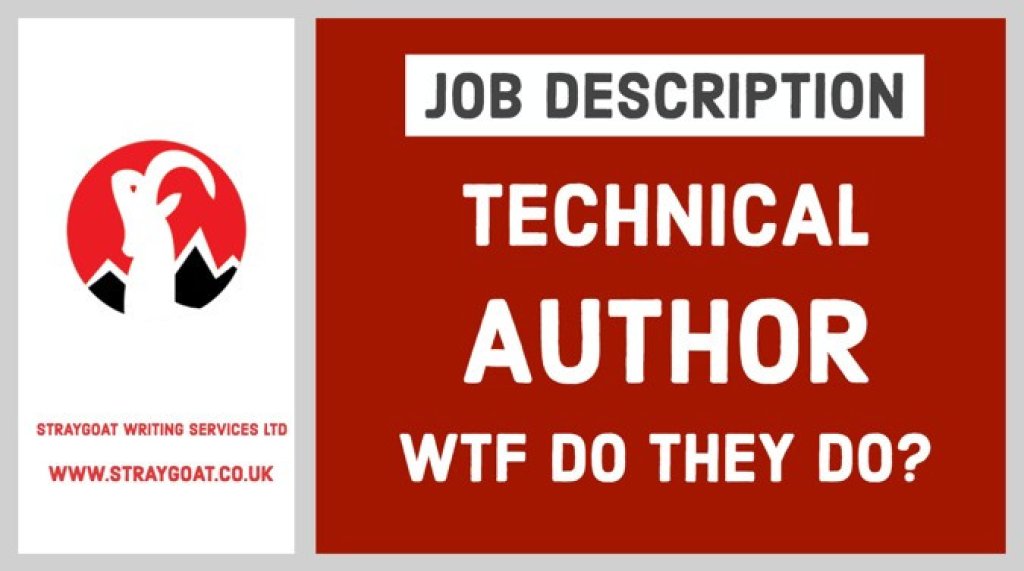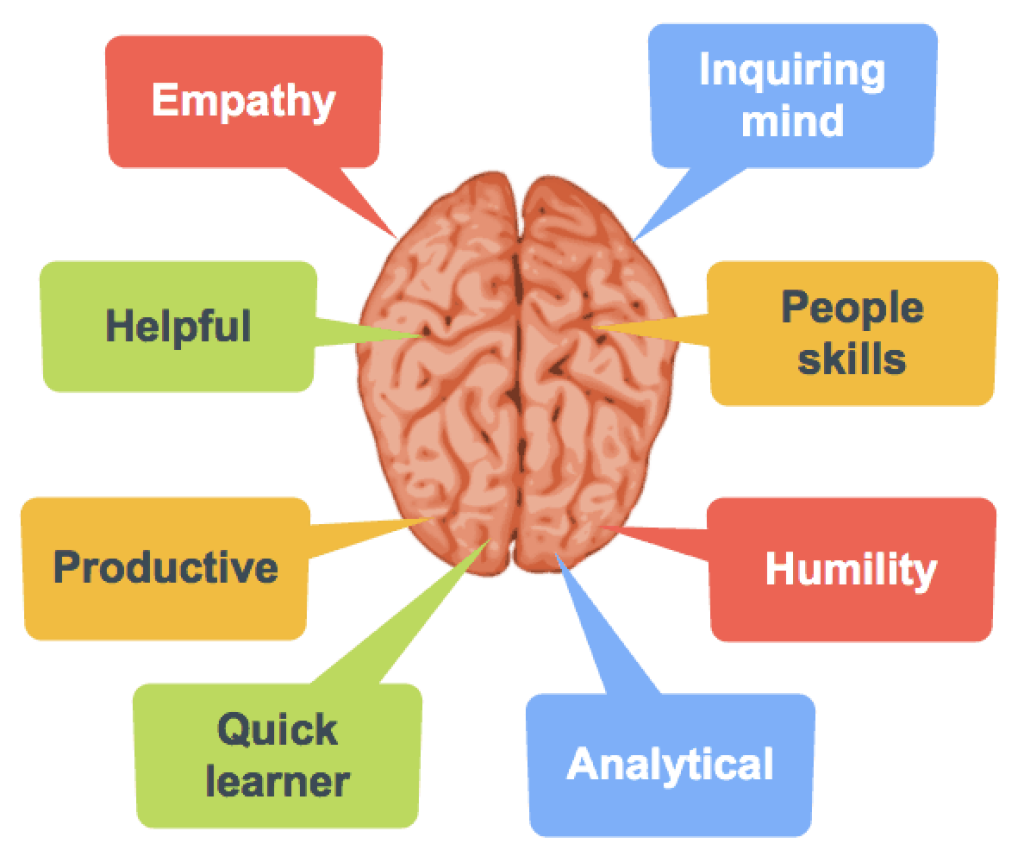
A technical author is someone who writes content that explains how to use a product or service or perform a task. They are also called technical writers and technical communicators. Common examples of technical writing are instruction manuals, online help, knowledgebase articles, and training materials.
But is that all they do?
In this post, I'm going to look at some of the things technical writers do and the skills they need. Hopefully, it will give you a more rounded job description and give you a better idea of what technical authors have to offer.
Technical author job description
Technical authors create information in a format that is easy for the end user to understand. Notice I've put 'information', because technical writing isn't always about technical stuff. It can be explaining concepts or how to do things for pretty much anything.
Technical writers create:
User guides
Online help
Web pages and customer support pages
Knowledgebase articles
Tutorials
Training material.
There are also technical authors who specialise in certain types of communication. For example, API technical authors document code and the audience is generally other developers. Some technical authors cross over into bid and tender writing, where they put together the proposals.
Then there are those technical authors, like myself, also work on marketing content. But the skills and approach for sales copywriting are different to those for technical writing. So if you want to use a technical writer as a copywriter, make sure they have had some training or experience in copywriting. And the same applies if you hire a copywriter to produce user guides - the two disciplines are different (I know, I've studied and practiced both).
Technical author skills
The skills you should look for in a technical author will vary, depending on what your business needs.
Basic technical writing
At the very basic end, where you're looking to produce a small amount of help pages or short user guides, you need a technical author who:
Writes clearly and concisely
Knows how to identify the needs of the audience
Can get information from your experts and turn that into content your readers can understand easily
Knows how to craft non-linear user guides.
They should also write your user guides so that the sections are standalone and work in their own right. People don't read manuals like a book, they dip in to the sections they need. So those sections need to work in their own right, without relying on readers having read 'earlier' sections. There is no 'earlier'.
Big boy shit
Modern technical authoring tools have lots of features that make it easier to create content in bulk. These features can save you a lot of time and money, but they require your writer to have a good understanding of how they work.
So if you are looking to produce a suite of user guides or online help content, you should look for an author who knows about:
Modular writing - writing content as topics that can be reused in lots of manuals, so that updates are made once but ripple through to every manual that needs the change
Conditional text and variables - writing pieces of content that change or are not shown, depending on where they appear
Single sourcing - creating PDF, HTML5, ebooks, etc., from one set of files
Information types - organising your content by the type of information each topic contains.
These ideas have been around in technical communication for a long time and can help to reduce production times and futureproof your content.
A technical author who keeps up-to-date with events in the #techcomm industry should at least have an awareness of these features. Ideally, you'd want hands-on experience of them.
Adding value to products
It's much easier to document a product with a great user interface than it is to try and explain clunky controls. Technical writers can be user advocates in your business as we experience your products in the same way as customers do. So expect a good technical writer to spot poor user experience elements and to suggest improvements. Sometimes this might be UX writing or it could be ideas for changing how a feature works.
Technical author traits
Over the years, I've worked with lots of technical writers and the ones that do well have some common traits:

Empathy - A good technical writer needs to be able to see the world through your customer's eyes, so that they can understand what problems your customer faces. Then, they write to fix those problems.
Inquiring mind - Beware the technical author who doesn't ask questions. It's a vital part of the job to ask not only 'how' but also 'why' and 'what if?'
Helpful - Every technical author I've ever met wants to help people, and will often go out of their way to help.
People skills - Technical authors are often not technical experts, and so have to get information from SMEs. This requires social skills as the writer has to build a rapport with the expert. Don't confuse social skills with an outgoing personality (I'm an introvert and most writers I meet are too). You just need to be sure that the writer has the ability to communicate one-to-one in a friendly, non-forceful way.
Productive - Most of the technical authors I've worked with are happy to get stuck in and start producing content.
Humility - Egos and technical writing aren't a good mix. The role isn't usually held in high esteem and even the best writers are going to have their work heavily edited at some point. Thick skin is required. #nojobforsnowflakes
Quick learner - Technical writers need to have an aptitude for learning new things quickly. There's always going to be a learning curve, but you need to try and minimise that.
Analytical - The technical author needs to be able to analyse your information and structure it in a way that makes it easy for the reader to understand. It also needs to be structured so that other authors can find content easily.
What should you expect from a technical author?
If you've never hired a technical author before, here's what to expect:
Questions. Lots and lots of questions. The technical author will need to work closely with SMEs to make sure they understand the product or service. But they won't want to learn everything at once, just enough to document a sub-set of tasks.
Quiet. Don't be alarmed if your technical writer seems lost in their own world as they are writing. It's pretty common to zone out and focus on the writing. Lots of technical writers are introverts too.
Reviews. Don't expect your tech writer to get everything right immediately. The reviews may highlight misunderstandings or even misleading elements of the product. But this should all be fixed before publication.
Interaction. Your tech writer will need to learn about the product/service and the customers who use it too. So don't be surprised if they start to ask questions outside of the development team. Customer-facing staff can have information that's valuable to the technical author's understanding of your customers.
The art of being technical without being technical
In most jobs, the term 'technical' implies technical knowledge. With technical authors, it's different. Think of a technical writer as a content designer who is good at explaining complex terms in simple ways. We act as filters between subject matter experts and customers - we syphon out the irrelevant and organise the information so that customers get content that they can understand.
But, just to throw a spanner in the works, some technical writers are technical. This can be good and bad. Technical experts who write for advanced level readers can often produce content more quickly, with less assistance. But their content is often too complex for novice-average readers to understand.
How the role might change
Ch-ch-ch-ch-changes, technical writing roles seem to be on the wane. But that's not to say it's dying, it's just evolving. Content design is covering areas that would have been classed as technical writing a few years ago, and copywriters are turning their hands to technical writing too. Also, there are new roles such as UX writer, which is really just a subset of technical writing - show me a software technical author who hasn't written UX microcontent!
As user interfaces become more user-friendly and automated, the role of technical writer may change. There'll be less need to write about 'how to' , which will free us up to write more about the concepts and examples that help to aid understanding. You need your technical writers to be aware of this and to be open to change. Because that's a negative trait that I've noticed - many technical writers never look beyond the #techcomm bubble to see what's going on in the wider world of content creation.

